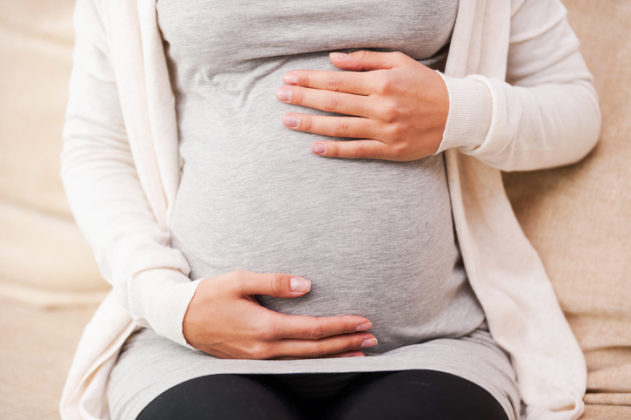When self-proclaimed feminists decry ‘female erasure’ in pregnancy-related care, they endanger many.
Last month, The Colorado Doula Project (CDP), a grassroots organization that provides “free emotional, physical, and informational support through the spectrum of reproductive experiences,” held the first formal abortion doula training in the state of Colorado. Nearly 50 women and non-binary people gathered to learn how to accompany clients or friends through the process of terminating a pregnancy.
Sitting in on the training to write about it for Vice, I wasn’t shocked to hear murmurs of a disturbance going on outside. Of course, I figured, an event with the word “abortion” right there in the name would attract attention from anti-choice zealots.
One of the organizers sighed. “I was expecting to have trouble with the anti-abortion people, but I didn’t think we were going to get attacked by feminists.”
I did a double take, and she filled me in.
Because the Colorado Doula Project strives for intersectionality and accessibility, they talk about their clients and potential clients in gender-neutral terms, referring to “pregnant people” and “birthing parents” so as to encompass DFAB (designated female at birth) transgender and non-binary people who are not women, but still need pregnancy-related care.
A local self-described fourth-wave feminist attended the abortion doula training despite not agreeing with the CDP’s policy on gender-inclusive language. Early in the first day, she began posting comments on Facebook criticizing the policy, calling it “female erasure,” and saying “I can’t fucking stand third wave liberal feminism.” After being asked to leave, she exhorted a large group of her friends to post negative reviews on Colorado Doula Project’s Facebook page, many of them also accusing the group — which most of them had never had direct contact with — of “female erasure.”
As societal acceptance for trans people inches forward, it’s becoming more possible to talk about the fact that pregnancy and birth are not exclusively female experiences. Trans men and non-binary people can get pregnant too, and have been living these same experiences for as long as humanity has existed. Including them in reproductive care is not actually new; the only thing that’s changing is the willingness of care providers to acknowledge those diverse identities and treat them with respect.
But when the Midwives Alliance of North America (MANA) updated its core competencies to replace some instances of the word “women” with “pregnant people,” the backlash was dramatic. A group of midwives, including the revered Ina May Gaskin, wrote an open letter accusing MANA of “prioritizing gender identity over biological reality.”
The underlying assumption is clear: Trans men are not real. Non-binary people are not real. Their experience of pregnancy does not matter and should not be part of the conversation.
This is part of a larger movement among a certain population of feminists to define trans people’s rights as not only irrelevant, but actually antithetical to the goals of women’s liberation. Such ideology is usually described by its adherents as “gender-critical feminism” and by its opponents as “trans-exclusionary radical feminism.” I’ve written elsewhere about how excluding trans women from feminism hurts all women, but there’s also no reason my rights should come at the expense of trans men’s health and safety. As a cis woman, I’m left wondering how offering culturally competent health care to trans and non-binary people harms me.
The “Woman-Centered Midwifery” open letter to MANA says that “If midwives lose sight of women’s biological power, women as a class lose recognition of and connection to this power.” Apparently there is some kind of cosmic energy that is intimately connected to having a vagina, and our pipeline to that spiritual force or whatever is irreparably damaged if we describe it as separate from womanhood. Having not given birth, perhaps I am simply not yet hooked into the network of femaleness, sitting here like a laptop waiting for the wireless password, unaware of what’s going on around me. This definition of female experience strikes me as profoundly objectifying — not to mention dismissive of the many women, including cis women who cannot get pregnant.
I have never given birth, but I am a parent. My transmasculine spouse is the one who carried our daughter. I have intimate personal experience with the medical realities of pregnancy, from artificial insemination to in vitro fertilization to midwifery care to herbal induction to, finally, the hospital birth we dreaded — in large part because the setting was hostile to my partner’s genderqueer identity. Every visit to a care provider other than our beloved midwife was a teeth-gritting slog through being misnamed and misgendered. There is a place for medical records to note a trans person’s real name (that is, the one they go by) if it’s different from their legal name, but as far as I can tell it’s just there to use up excess ink, because nobody at the hospital ever called my partner by the right name on the first try.
I don’t know what it’s like to be misgendered, not from the inside, but I have sat very close to the person I love most in the world and watched it happen, and even from that distance it hurts. It has never made me feel connected to my womanly power.
Lindsay King-Miller is a queer femme who does not have an indoor voice. Her writing has appeared in Bitch Magazine, Cosmopolitan.com, Buzzfeed, The Hairpin, and numerous other publications. She lives in Denver with her partner, a really cute baby, and two very spoiled cats. She is the author of Ask A Queer Chick (Plume, 2016).
This originally appeared on The Establishment. Republished here with permission.
Other Links:

